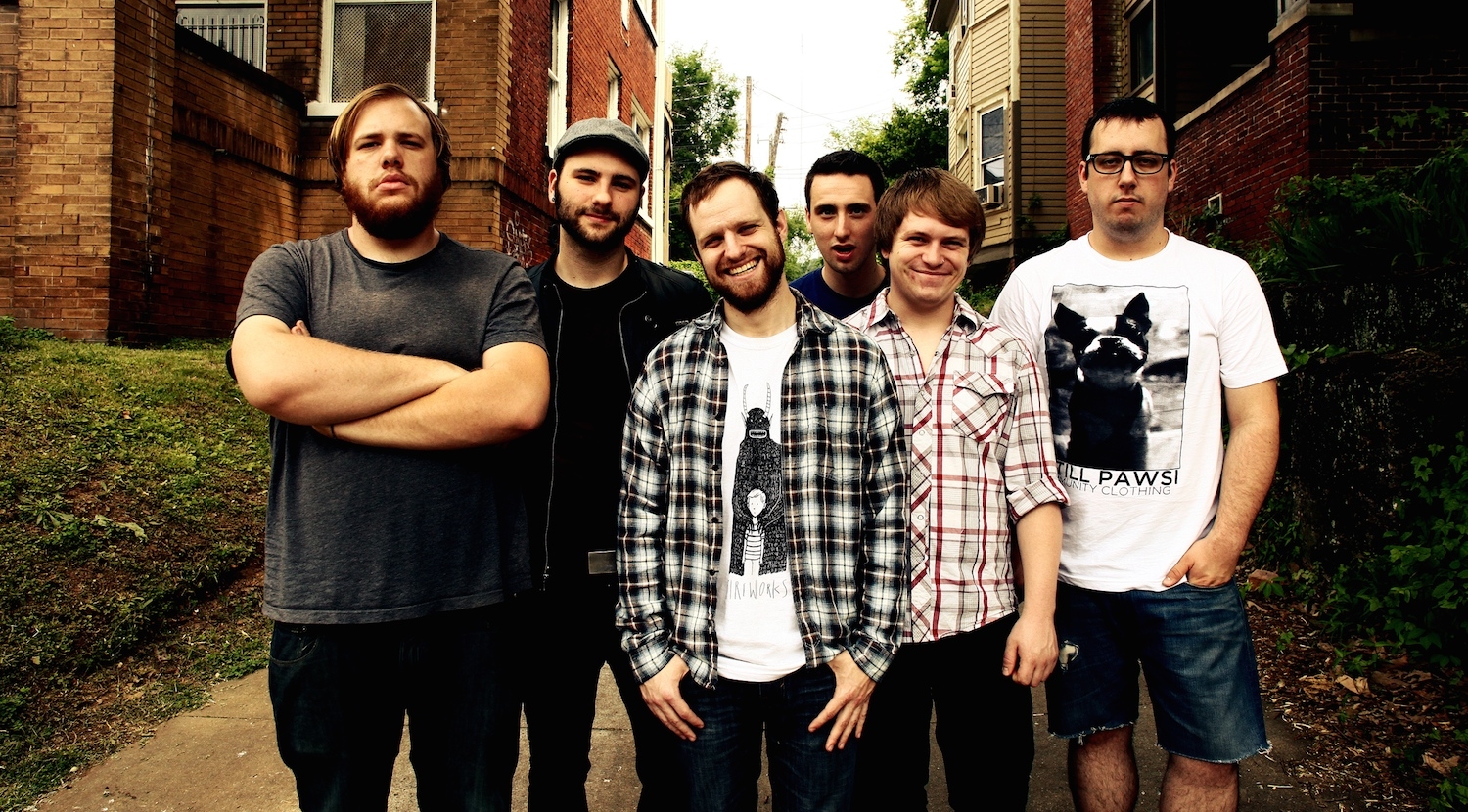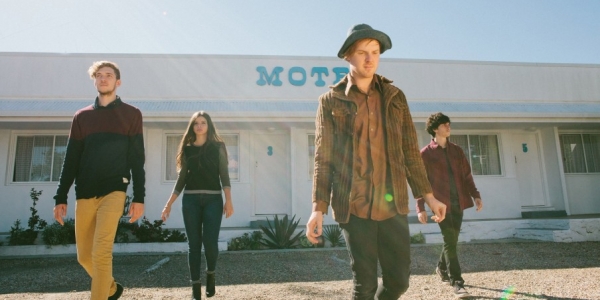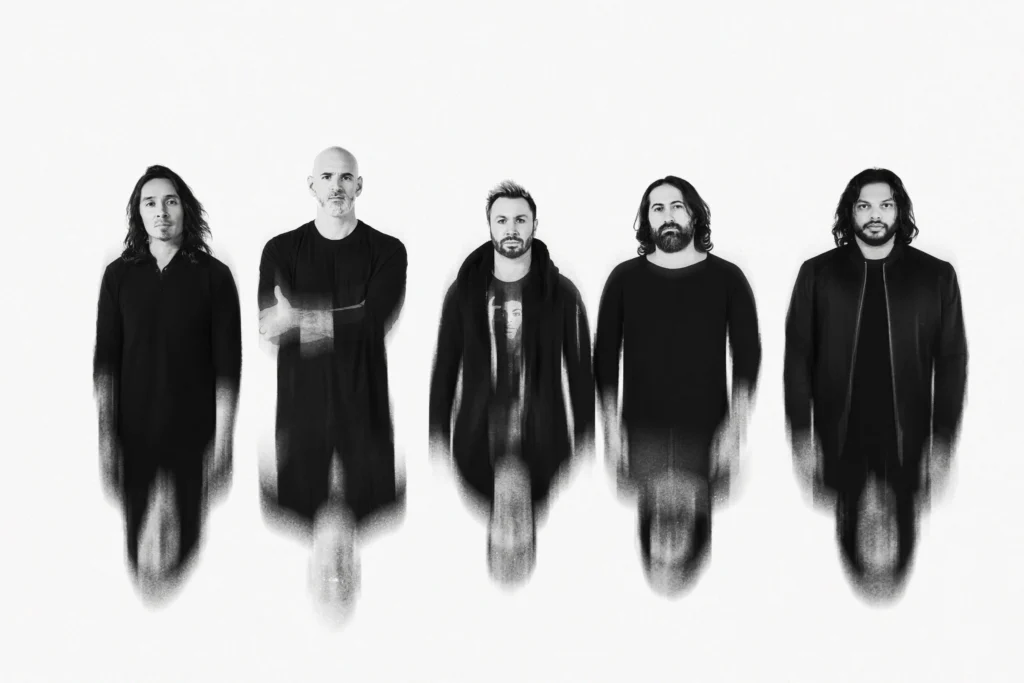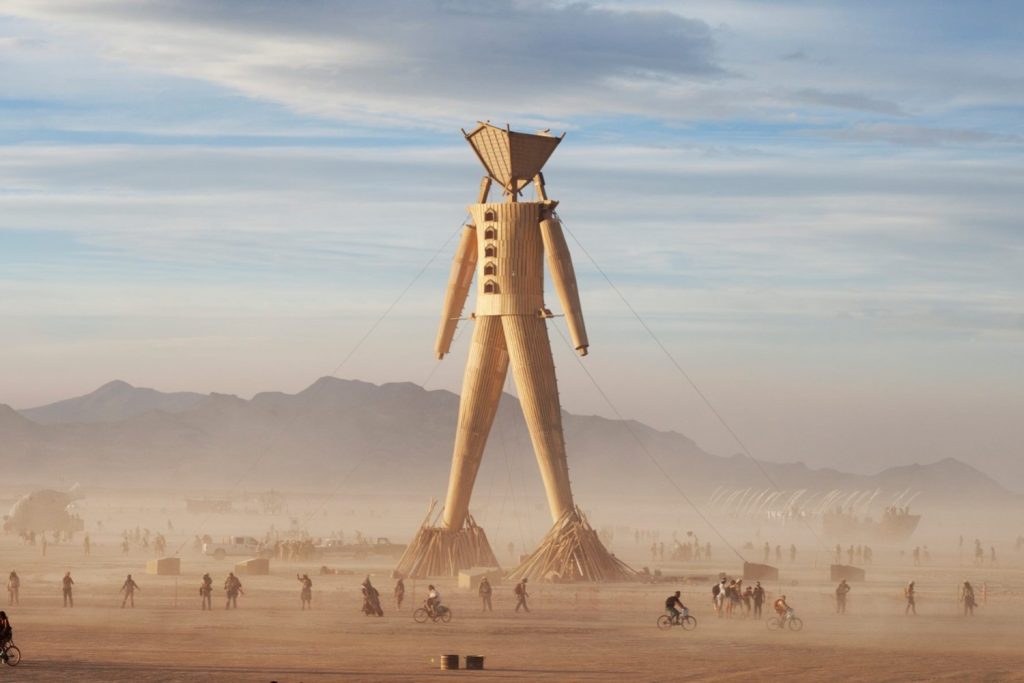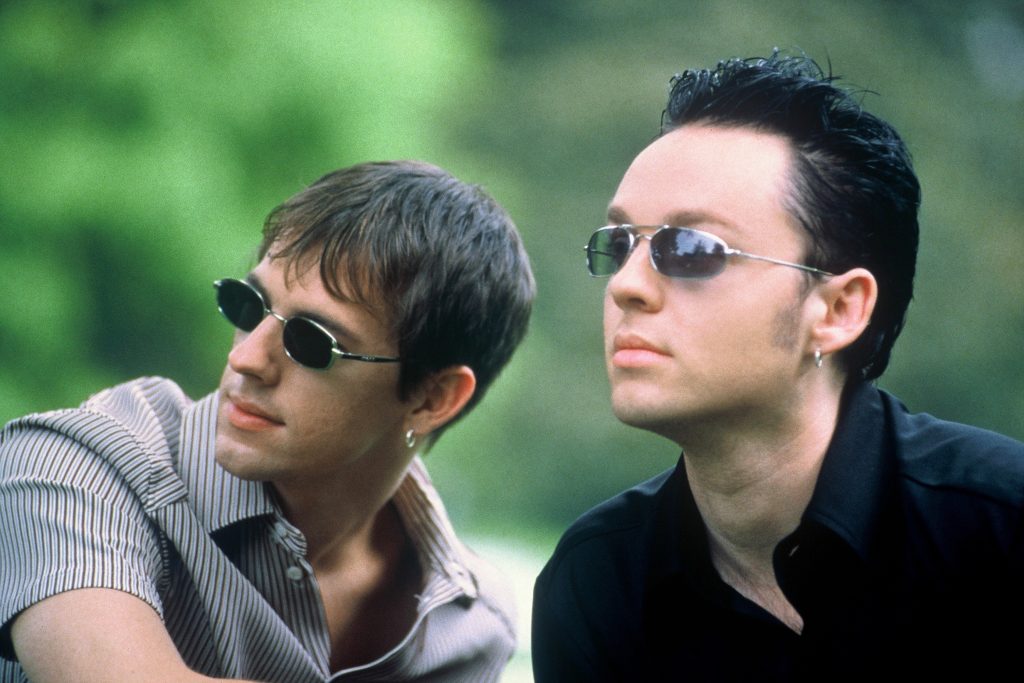Fifteen posters spread across 15 locations around the world – from New York to Barcelona, London to Toronto, Glasgow to Melbourne – fans were sent on a universal scavenger hunt. The end result – news of The Wonder Years’ sixth album, Sister Cities.
“We always want to do something special. Something that is unlike anything else you’ve ever seen when a record gets released. We believe that if we put all of this time and energy into making the record, everything surrounding the record should get an equal amount of time and energy and be just as special,” says the band’s vocalist Dan “Soupy” Campbell.
“The record is about connecting with people across oceans, across languages, across cultures. About connecting with one another and realizing how similar you are to people that you thought you were very different from. With that in mind we thought, ‘We have fans in all of these places, and they don’t necessarily communicate, but they already have something in common. They already like this music, they already like our band. Maybe if they talked to one another it would help illuminate the point of the record.’”
The idea of connection, of exploring the different ways in which people and places are intrinsically linked without even knowing it, is one that slowly unfolded over the course of The Wonder Years’ last few years on the road. Memories scrawled down in journals and moments frozen in photographs from across the band’s mammoth two-year world tour following 2015’s No Closer To Heaven provided the foundation for Sister Cities to grow.
The album’s title track came to life following a cancelled performance in Chile – lost and feeling helpless, a group of local fans eventually helped The Wonder Years put together an impromptu show. Album opener ‘Raining In Kyoto’ is based on another moment of kindness from strangers. After the passing of Campbell’s grandfather while the band were in Japan, and unable to return home for the funeral service, Campbell went to a shrine, here – and at his most vulnerable – an older man showed him how to pull on a piece of fabric that rang a bell.
Other moments on the album are more solitary, like the hydrangea bushes lining a road in Costa Rica that reminded Campbell of the same flowers drying out in his in-law’s basement back home, inspiring ‘Flowers Where Your Face Should Be’.
“Those parallels, finding ways that you’re connected to other places that you didn’t think about before, those kept slowly revealing themselves to us. Growing up, we were outside Philadelphia, in a smaller suburb, and my family didn’t have a lot of money, and we didn’t go a lot of places. We went on vacation once a year, to the New Jersey Shore, so about an hour and a half away, and that was as far away from home as I really got,” says Campbell.
“The world seems massive when the only experience you get with other cultures is what you see on the news, or what you see in a book. It can feel very different. You start to think about other countries almost as other planets. A lot gets made of differences, but then when you actually go to these places, the thing that I found most awesome was that people were very much like me in a lot of very core ways, they were very kind and showed the same humanity that I have.”
Outside of the stories of humanity and connection that underpin the record, Sister Cities is also the result of a band ready and willing to push themselves further and harder than they ever have before.
“On this record, one of the big things we had was time – we could push everything, we could push each other to be different, to be interesting, to be better, to not always take the way that comes most naturally, and not just fall back into habits but to try to make something that pushes our boundaries,” says Campbell.
“Despite the fact that we write them all together, every song has to start somewhere. If the song starts with me, I have some lyrics and I get an acoustic guitar, and I figure out the melody and the chord changes [but] I leave it very blank, very open. There’s no implied feel, so that we can build it together.”
This building process is most evident in ‘The Ocean Grew Hands to Hold Me’. Through experimenting with everything from time signature and pacing, to drum sounds and guitar and bass, the sprawling, six-minute album closer came to life.
“I remember the first time we got there, and we got to the bridge, and I had my eyes closed, and I was singing it, and I thought, ‘Did we write this song? Is this us? It sounds like what I wished I could’ve written.’ And by all of us pushing each other to do something different, and take a risk, we wrote what I think is the best song the band’s ever written. If that’s the last song this band writes – and we’re not planning on this being it – but if that’s the last song this band writes, I will have been totally fulfilled by it.”
Sister Cities is the result of 13 years of experience, of a band who’ve worked tirelessly to go farther and perfect their craft. The final product is quite possibly – and from Campbell’s point of view – the best record the band has ever made. “There’s no way to come off where you don’t sound like a jerk, or that you’re self-centred, but what I’ll say is: we finished the first three songs, we had them demoed, and I thought, ‘All three of these songs are better than several of our entire records.’ And that’s a really good start. A tone was set, we don’t want to write anything where we’re feeling like it’s not keeping pace with the first three. I thought, ‘If any of these were the single from any other record, it would have been perfect,’” says Campbell.
Now, with the album out in the world, Campbell hopes – above all else – that Sister Cities will help people think about the world outside of their towns, and maybe, just maybe, dissolve some of those borders keeping people apart.
“If I have to give a dream for it, like a fantasy about how the record could impact people, what I would love is, if you maybe grew up in a town like I grew up in, if the world seems very big to you, and people seem very different, and maybe you’re hearing a lot of people talk about how different they are. Maybe you’re being told that these people who you’ve never met, and may never meet, are your enemies in some way, or threaten your way of life – what I’d like you to know is that they’re not so different,” Campbell says.
“They’re very much like you, and in your head, maybe it feels like you’re very important, and I think that you are. But everybody else is just as important and just as valuable. It’s important to see the ways that we’re alike and concentrate more on that.
“We’re different too, but we’re different in beautiful, interesting ways. Not in destructive, caustic ways.”
